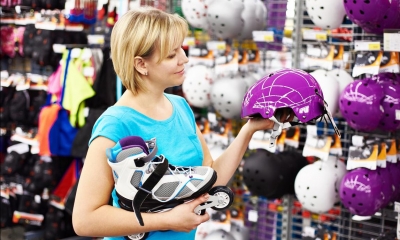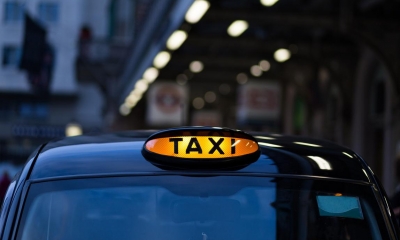
If you buy fish direct from local fishermen, there's specialist legislation you'll need to comply with. Most importantly, businesses that handle and sell food have to comply with a range of food safety legislation. Furthermore, as a business person, retailer and possibly employer there is other general legislation that you should be aware of.
The following is an outline of some of the areas which may well be relevant to your business. You can see an overview of the legislation that covers fishmongers on the Seafish website.
What licences does a fishmonger need?
Food retailing
As a food retailer you will need to register with your local authority environmental health department. Contact your local authority for details. They will inspect your premises and help you to comply with the requirements of the Food Safety Act and regulations made under it. There is no charge for registering.
Buying fish direct from fishing vessels
If you buy significant quantities of 'first sale' fish or shellfish direct from local fishing vessels you will need to register with the Marine Management Organisation (England) or the appropriate fisheries department in other parts of the UK. You must also complete a buyers sales note for any fish you buy in this way and submit it to your local fisheries office. You can do this online or with a paper sales note. Records of each purchase must be kept for two years after the end of the year in which you make the purchase. You can find out more about fish buyer registration from the Seafish and Gov.uk websites.
Street trading
You might decide to sell things like shellfish from a mobile trailer that you park at a particular site or sites. Your local authority may require you to buy a street trader's licence, which can cost as much as several thousand pounds a year. Sometimes an initial application fee is due, plus a daily fee which might be payable per square metre of the pitch.
Check with your local authority to find out the exact cost of a licence if required - do so early on in your business planning to avoid any nasty surprises later on. Similarly, if you intend to operate a mobile sales round from a van you should find out whether your local authority has any special licensing requirements.
Selling game
If you intend to sell game then you should always check that any game you purchase was acquired legally and not poached. However, there is no longer any requirement to hold a game dealer's licence.
Background music
If you plan to play background music in your shop you will need a Music Licence from PPL PRS Ltd. There is an annual fee for this which you can pay online on the PPL PRS website.
If you buy fish direct from local fishermen, there's specialist legislation you'll need to comply with. Most importantly, businesses that handle and sell food have to comply with a range of food safety legislation. Furthermore, as a business person, retailer and possibly employer there is other general legislation that you should be aware of.
The following is an outline of some of the areas which may well be relevant to your business. The list is not intended to be exhaustive. You can see an overview of the legislation that covers fishmongers on the Seafish website.
Registration of Fish Buyers and Sellers Regulations
If you buy fish or shellfish direct from local fishing vessels you will need to register with the Marine Management Organisation (England) or the appropriate fisheries department in other parts of the UK. You must also complete a buyers sales note for any fish you buy in this way and submit it to your local fisheries office. Records of each purchase must be kept for two years after the end of the year in which you make the purchase. You can read guidance on the Regulations on the Seafish website.
Fish and food labelling requirements
Food labelling and information regulations require any prepacked food (such as home made fish stock or fish cakes) sold to another retailer, for example a delicatessen, to be clearly labelled. The Fish Labelling Regulations require that all loose or unwrapped fish offered for sale must be labelled with specific information, including where it was caught and whether it has been farmed or caught at sea. You need to provide details of the presence of 14 allergens if any of these are included in either pre-packaged foods or items sold loose. You can contact your local trading standards department for more information on fish and general labelling matters or visit the Trading Standards Business Companion website.
Disposing of fish and shellfish waste
Any waste raw fish or shellfish that you're not going to sell must be disposed of correctly - for example this would include fish heads, skins and bones as well as fish that has lost its freshness. There are specialist organisations that collect and dispose of animal by-products (ABPs). You can read more about disposing of fish waste on the Gov.uk website.
Food safety
All businesses in the food sector must comply with strict food safety legislation. Before you open, you must register your business with the local authority environmental health department. Your local environmental health officer will be able to give you advice and guidance as to what you should install in your premises to make sure your operating areas are hygienic and how to comply with the requirements of the Food Safety Act and regulations made under it.
If you intend to sell game (wild or farmed) then you must observe the special provisions made for this type of meat in conditions laid out by the Food Hygiene Regulations.
Food hygiene rating
Fishmongers in Wales and Northern Ireland must participate in a mandatory hygiene rating scheme - food businesses must display their most recent food hygiene rating.
Retailing
There is a wide range of legislation that applies to retail outlets and that protects the interests of the consumer. For example, goods and services must not be misleadingly described and the retail price of goods must be clearly displayed. You will be responsible for making sure that all goods are fit for their intended purpose and of satisfactory quality.
The Weights and Measures Act and secondary legislation made under it regulates the sale of all products sold by weight or count. All food goods sold loose, including fresh fish, must be priced and weighed in metric units.
Carrier bag charge
A minimum 10p charge applies for single-use carrier bags in England (other rules apply in Wales, Scotland and Northern Ireland). You can get detailed guidance from the GOV.UK website.
Employment legislation
Anyone employing staff must comply with employment legislation. Important areas of legislation include recruitment, employment contracts, pay, working hours, holidays, employment policies, sickness, maternity, paternity, discrimination, discipline, grievances, dismissals, redundancies and employment tribunals.
Insurance for a fishmonger
Contact an insurer or insurance broker and explain exactly how your business will operate - they will then explain what insurance cover you must have by law, and other cover you should consider. This might include:
- premises, premises contents and stock
- goods in transit (for example on the way back from a wholesaler, or delivering to customers)
- freezer and refrigerator breakdown
- cash
- business interruption
- employer's liability
- public and product liability
- motor insurance (for delivery vehicles)
It's worth noting that some trade associations offer their members special insurance packages and discounts. For example, members of the National Federation of Fishmongers benefit from free public and product liability cover and preferential rates on other business insurance.



